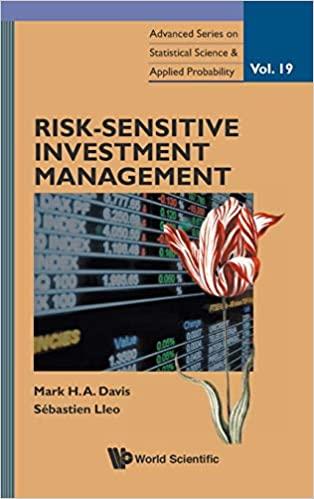Question
Your company is considering two investment projects, each of which requires an up-front expenditure of $50 million. You estimate that cost of capital is 10%
Your company is considering two investment projects, each of which requires an up-front expenditure of $50 million. You estimate that cost of capital is 10% and that investments will produce the following after-tax cash flows (in millions of dollars):
| Year | Project A | Project B |
| 1 | 5 | 25 |
| 2 | 10 | 15 |
| 3 | 15 | 10 |
| 4 | 20 | 8 |
| 5 | 25 | 6 |
a. What is the regular payback period for each of the projects?
b. What is the discounted payback period for each of the projects?
c. If the two projects are independent and the cost of capital is 10%, which projects should the firm undertake? Why?
d. If the two projects are mutually exclusive and the cost of capital is 5%, which projects should the firm undertake? Why?
e. If the two projects are mutually exclusive and the cost of capital is 15%, which projects should the firm undertake? Why?
f. What is crossover rate?
g. If the cost of capital is 10%, which is the MIRR of each project?
Step by Step Solution
There are 3 Steps involved in it
Step: 1

Get Instant Access to Expert-Tailored Solutions
See step-by-step solutions with expert insights and AI powered tools for academic success
Step: 2

Step: 3

Ace Your Homework with AI
Get the answers you need in no time with our AI-driven, step-by-step assistance
Get Started


